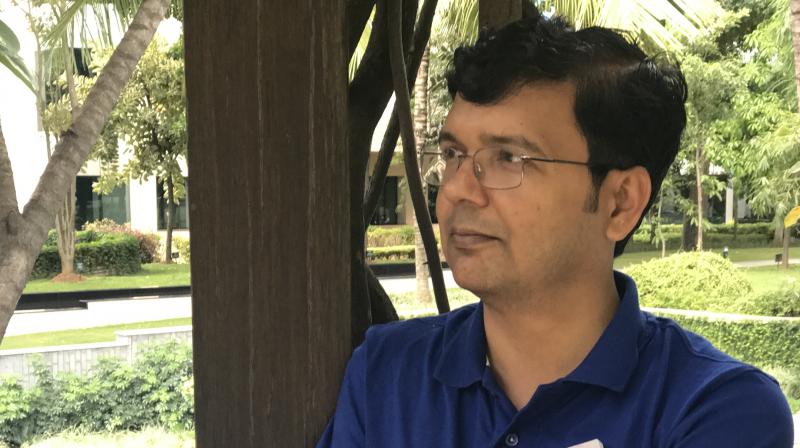Transit Lounge: A techie's account of travelling to 30 countries
In conversation, author Sunil Mishra talks about the book, and talks about how travelling as an overall experience, has changed over years.

A travel memoir of sorts, Sunil Mishra’s Transit Lounge takes a look at 30 countries across six different continents during the last 15 years from his perspective.
An Indian techie by profession, Mishra’s job allowed him to travel the world, not as a tourist but as a brief visitor to varied places across the world.
What makes Mishra’s Transit Lounge tick, is primarily the fact that there is woefully less material available when it comes to travel books from an Indian’s perspective and his simple lucid style of writing which will touch a chord of readers who are not bent towards high-end language or exuberant travel experiences.
Mishra’s words echo a middle-class sensibility, while he travels across the world, that many may be able to relate to while leafing through the pages of his book.
From ranting about airport-policies (or the marked lack of it) to being bedazzled by expensive cars in foreign countries or the stark socio-economic conditions of yet other places which he called home during his tenures, Transit Lounge is informative, sometimes witty, and often a wonderful window into the world out there.
In conversation with this correspondent, Mishra shares his thoughts on writing the book, and talks about how travelling as an overall experience, has changed over the years.
What brought about you writing the book?
I was fortunate to travel to various countries as part of my work. I used to write personal notes of individual travels, anything that I would find interesting. As I started blogging about some of these travels, I received positive reviews from my friends and well-wishers. It is then that the idea of collating this and publishing it as a book occurred to me.
How would you define the book?
Transit Lounge is a contemporary book consisting of short incidents, observations and reflections while travelling to 30 countries across six different continents during the last 15 years.
The book is a personal account of travels to places in Africa, South America, Asia, Europe, the US, Australia and New Zealand. It was interesting to observe all these different cultures and people from an Indian’s perspective.
Among all the places you have visited, which one is your absolute favourite, why?
From a traveller’s perspective, all my travels have taught me a lot. So, it’s difficult to call out the favourites. I enjoyed visiting the less travelled to countries like Ghana, Nigeria, Iran, Georgia, Croatia and Venezuela, to name a few. If you look for specific purposes like working for a short duration – I found Singapore quite good. It is one of the most systematic, safe and well-organized city state.
How has travelling experience changed over the years?
The travelling experience over the last 15 years has remarkably changed. Back in 2000, travelling out of Indian airports used to be a nightmare. As per a world ranking from Forbes in 2009, 3 of the top five worst airports in the world were in India – Mumbai topped the list, Delhi on 3rd and Bangalore on 5th.
When today we land at T3 in Delhi, it is no way differentiable from Singapore anymore. The vast open space, automatic baggage handling, self- check-in kiosk and sprawling shopping area – almost all the Indian airports today are vying for the best infrastructure in the world.”
If a person were to travel to five places at present, which are the places you would suggest. Why?
Each country provides a unique learning experience. However, if I were to suggest five places based on my personal experience they would be Buenos Aires, Argentina (For the unique Latin American culture and vibrant night life); Wellington, New Zealand (For the quite, serene and green natural setup); Tbilisi, Georgia (An exotic location in Eastern Europe); Amsterdam, Netherlands (For the beautiful canals) and Cairo, Egypt (For the fascinating history of mankind).
Is it a tourist guide or an experiential?
The book is entirely experiential. It is less of a tourist guide. In fact the below quote from G.K.Chesterton captures the essence of the book
"The traveler sees what he sees. The tourist sees what he has come to see."
My attempt to write the book has been to capture the traveler’s account.
What do you think readers will take away from the Transit Lounge?
I have tried to summarise the learnings from my travels in last chapter, hopefully the readers will have similar take aways as well. To summarise, I learnt about India more by travelling abroad and also found out that what we learn from media is not always the true picture. Furthermore, India was really transitioning faster than the many other countries during my visits, and I found that Indian immigrants are always rooted to their mother nation, wherever they may be. And finally, the basic core values in all the countries are more or less similar.

